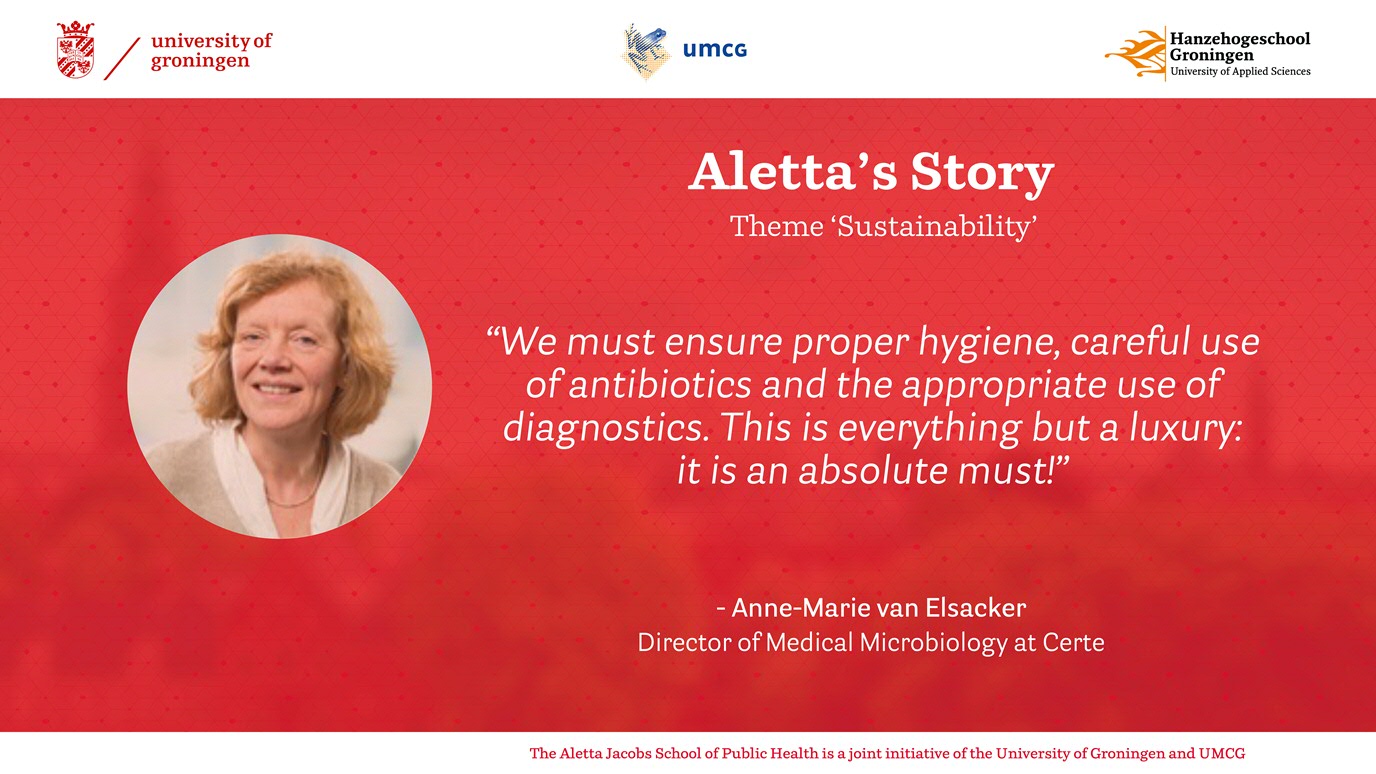Anne-Marie van Elsacker
Anne-Marie van Elsacker, Director of Medical Microbiology at Certe
I knew from early on: I wanted to be a doctor, so I could help other people. My initial interest went out to paediatrics. But, during my studies in Medicine in Rotterdam, I was also gripped by medical microbiology. This specialism is fascinating, dynamic and very relevant. I let fate decide what would be my medical specialisation. The first seat that became available? Medical microbiology! I have never regretted my choice. The discipline offers opportunities for development in all kinds of fields, such as science, laboratory work, education or policy. For me personally, an advantage of medical microbiology is that it does not involve direct patient care. As a support specialism, it does not have the dynamics of outpatient clinics and department work that clinical medical specialties do. That gives me a great deal of control over my time schedule. I love that I control when I can switch between activities and abstraction levels During my career, I moved more and more to positions within management and organisation. As our laboratory and department are able to profile themselves well, I am able to work as a regular doctor-microbiologist for a peripheral hospital, up to the levels of the board of our scientific association (NVMM) and the Ministry of Health, Welfare and Sport.
My name is Anne-Marie van Elsacker. Since August 2017 I have been the director of the Medical Microbiology division at Certe Medical Diagnostics and Advice in Groningen. In our daily work we are, among other things, confronted with anti-microbialresistance. This is a globally increasing problem. At the root of this growing problem lies the lavish and wrong use of antibiotics in humans and animals, and antibiotics residues in the environment. Unfortunately, bacteria are organisms that adapt very well to changing conditions. We have become much more active in primary care to help tackle and prevent infections as quickly as possible. This is only possible if we actively work together in a network with the various professionals involved in municipal health services, general practitioners, nursing homes and home care organisations etc. Also, we can achieve a lot by bringing the available knowledge to the public through education. The establishment of the Aletta Jacobs School of Public Health is a blessing in that respect. Aletta is going to help us raise the battle against bacterial resistance on the regional agenda very quickly. The government demands this from us. Now, it is important that this theme receives appropriate attention not only within hospitals but everywhere on the 'work floor'. We must ensure proper hygiene, careful use of antibiotics and the appropriate use of diagnostics. This is everything but a luxury: it is an absolute must!

| Last modified: | 24 May 2019 3.16 p.m. |


